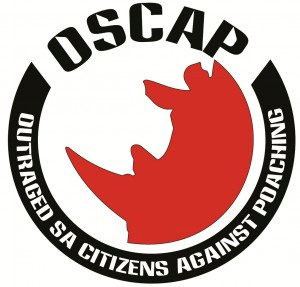Pretoria, South Africa
In 2011 Allison Thomson launched Outraged SA Citizens Against Poaching (OSCAP) as a facebook group opposed to rhino poaching. Encouraged by its rapid success online, OSCAP turned itself into a registered non-profit organisation in South Africa.
In 2014, OSCAP held an International Rhino Conference at which it laid out its core beliefs and objectives. One of these was that if the rhino horn trade was ever legalised, this ‘merely would inevitably create two parallel markets because the legal market could never be big enough to satisfy consumer demand’.
According to OSCAP, South Africa should abandon its desire to legalise the rhino horn trade and focus instead on bringing ‘khaki collar’ criminal networks to justice, and on supporting demand reduction programmes in rhino consumer states. The best way to protect rhino, says OSCAP, is ‘through effective wildlife law enforcement and field protection’. These include, in its words: ‘top notch security; dehorning – only where absolutely necessary when no other alternatives are available; education and awareness; increased sentences for people found guilty of Wildlife offences; no bail for suspects’.
Today, OSCAP has just under 20, 000 ‘members’ on Facebook, where it confirms that its mission is to maintain a moratorium on rhino trade both locally and internationally. OCAP’s patron is the musician Mark Knopfler.
Leaders
Directors Allison Louise Thomson, Anthony Alberts, Theresa Baber.
Spokesperson is Kim da Ribeira
Governance
Unknown.
Finances
Unknown.


